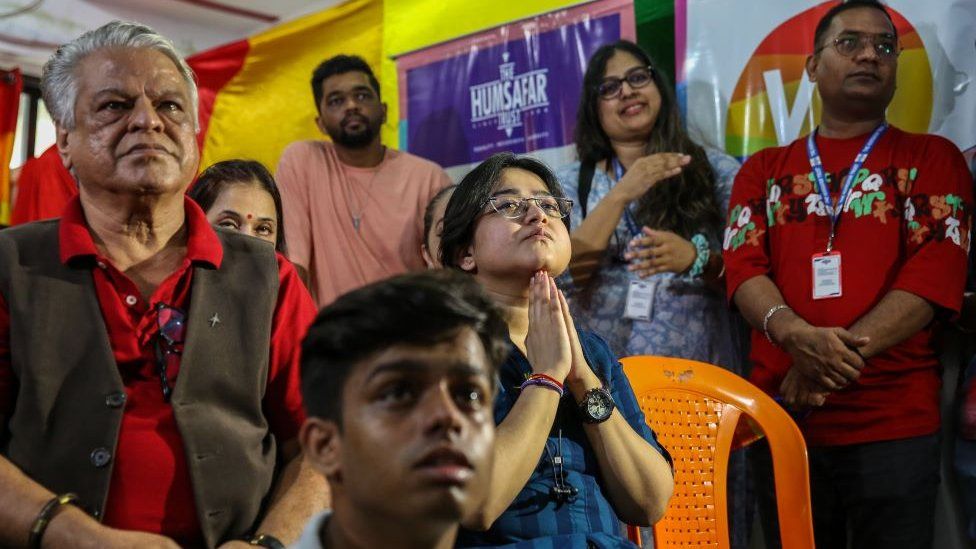-

-
-
Loading

Loading

India's Supreme Court has rejected the legalization of same-sex unions, disappointing LGBTQ+ individuals and activists who were seeking marriage equality. Instead, the court has agreed to establish a panel to consider granting more legal rights and benefits to same-sex couples. This decision comes after the court reviewed 21 petitions by same-sex couples and activists. The petitioners argued that not being able to marry violated their constitutional rights and made them feel like "second-class citizens." They suggested that the court could amend the Special Marriage Act to include same-sex unions by replacing "man" and "woman" with "spouse." However, the government opposed the petitions, stating that only parliament should address the issue. The judges ultimately agreed with the government, stating that it was the responsibility of parliament to create laws, while judges could only interpret them. They accepted the government's proposal to set up a committee, led by the top bureaucrat, to consider granting rights and privileges to same-sex couples. Although two of the judges supported granting the same benefits as married couples, their opinions did not sway the majority. The judgement has left activists and same-sex couples disappointed, as they had hoped for a landmark ruling allowing same-sex marriages. Some activists expressed concern about the bureaucratic uncertainty surrounding the committee's establishment and the absence of a clear timeline for providing rights. Those in favor of the decision claim that it reinforces the belief that only parliament has the authority to legalize same-sex unions. The verdict has stirred a wide range of reactions, with some disappointed and others welcoming the judgement. India is home to a sizable LGBTQ+ population, and attitudes towards sex and sexuality remain largely conservative, with stigma and discrimination still prevalent. Despite hopes for societal acceptance, the court's decision falls short of driving such change.